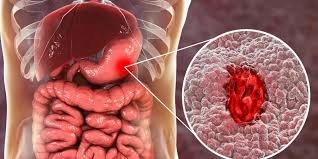
Stomach Ulcers: Symptoms, Causes, and Definitive Treatment
Published on: 2025-06-19 | Written by: Specialized Hospital for Digestive System and Liver
Stomach ulcers are among the most common digestive disorders, causing discomfort and affecting daily life. At Al-Takhassusi Hospital for Gastroenterology and Liver Diseases, cases are handled with precise diagnostics and comprehensive treatment plans that aim to eliminate the root cause of the ulcer and prevent complications.
What Are Stomach Ulcers?
A stomach ulcer is an open sore or erosion in the lining of the stomach, resulting from an imbalance between stomach acids and the protective mechanisms of the stomach wall. The pain is often intense, especially during or after meals.
Common Causes
Key causes of stomach ulcers include:
-
Infection with Helicobacter pylori bacteria
-
Excessive use of pain relievers like aspirin and NSAIDs
-
Severe psychological stress
-
Smoking and alcohol consumption
-
Unhealthy dietary habits
At Al-Takhassusi Hospital for Gastroenterology and Liver Diseases, identifying the underlying cause is a priority to tailor the most effective treatment.
Symptoms
The main symptoms of stomach ulcers are:
-
Burning pain in the mid-abdomen
-
Nausea or vomiting
-
Loss of appetite or unintentional weight loss
-
Bloating or a feeling of fullness
-
Vomiting blood or black stool (in advanced cases)
If you experience any of these, it's important to visit Al-Takhassusi Hospital for Gastroenterology and Liver Diseases for an accurate diagnosis, often using endoscopy or other advanced tests.
Diagnosis
Stomach ulcers are diagnosed through:
-
Gastroscopy (endoscopy) – the most accurate method
-
Testing for Helicobacter pylori
-
Blood, stool, or breath tests
The expert team at Al-Takhassusi Hospital for Gastroenterology and Liver Diseases uses state-of-the-art technology to ensure accurate and comfortable testing.
Treatment
Treatment depends on the underlying cause and includes:
-
Antibiotics to treat bacterial infection
-
Proton pump inhibitors (PPIs) to reduce stomach acid
-
Antacids
-
Lifestyle and dietary modifications
-
Smoking cessation and stress reduction
In severe cases, where bleeding or deep ulcers are present, endoscopic or surgical intervention may be needed—available at Al-Takhassusi Hospital for Gastroenterology and Liver Diseases using the latest equipment.
When to See a Doctor
Seek medical attention if you experience:
-
Persistent or severe abdominal pain
-
Vomiting blood or passing black stools
-
Unexplained weight loss
-
Difficulty swallowing
Early diagnosis at Al-Takhassusi Hospital for Gastroenterology and Liver Diseases reduces the risk of complications and improves treatment outcomes.

